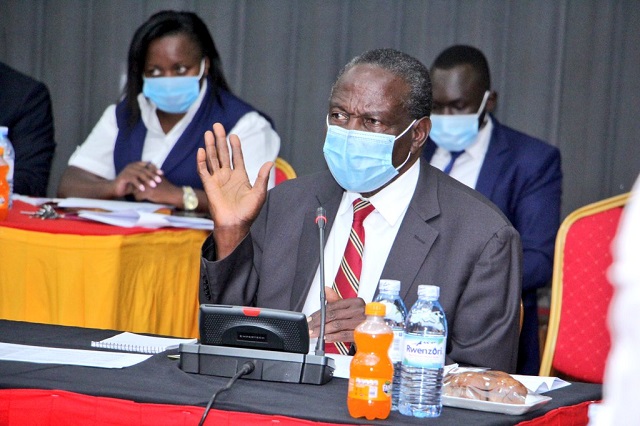
Kampala, Uganda | THE INDEPENDENT | The Ministry of Finance, Planning and Economic Development has warned ministries and government departments against relying on supplementary budgeting in the next financial year, saying it will not be easy for them.
Minister Matia Kasaija told the National Budget Conference, that supplementary requests are making it hard for the ministry to plan and implement programs.
Kasaija says supplementary budgets are expected in all budgets and that is why they are provided for in the financial management laws, but they should come as an emergency.
He cited international events that are planned for well ahead of the financial year, but the responsible ministries or departments go to his ministry in the middle of the year, when there is little time left to ask for money. He says that this beats the whole essence or necessity of budgeting.
The Budget Conference seeks to concretize the budget strategy and priorities required to meet the country’s development agenda while addressing current socioeconomic constraints according to the minister.
Budget priorities for the year 2022/23 will include restoration of business activity by increasing access to capital, industrialization focusing on agro-industry and light manufacturing, enhancing wellbeing of Ugandans through improved health and education, and improvement of productive infrastructure.
Kasaija says the next budget and government action will largely be driven by the effects of the Covid-19 pandemic that has disrupted the economic growth momentum.
“We pray that the Almighty God helps us and controls the other waves of COVID-19 that we are hearing about,” Kasaija said.
Before the onset of the pandemic, the Ugandan economy grew at 6.3% in the fiscal year 2017/18, accelerating to an eight-year high of 6.4% in 2018/19, according to the official national figures.
However, according to the minister, the pandemic triggered an economic slowdown and Uganda recorded real GDP growth of 3.0% (lower than the population growth) in 2019/20, the slowest rate in almost three decades. It grew slightly to 3.3% in 2020/21.
Uganda’s development partners, led by the World Bank advised the government to be more prudent in borrowing to avoid drowning the country into debt.
The World Bank country manager, Mukami Kariuki warned that government must limit domestic borrowing, increase domestic revenue collection and go for concessional external debt.
She says that this will enable government respond better to the impacts of the Covid-19 pandemic.
The partners have asked government to prioritise spending on human capital development like health and education, social protection, road maintenance and agriculture.
Kariuki for example says the additional 200 billion shillings for road maintenance is too little. The government plans to continue borrowing largely on favourable terms and restrict borrowing for projects or expenditures that are likely to enhance productivity and are critical for economic recovery.
The sharp increase in the debt stock has been defended by government, as necessitated by Covid-19. Uganda’s debt to GDP ratio has since increased from 41% in financial year 2019/20 to 49.9% as of June 2021.
This ratio, according to the ministry, is projected to increase to over 52.7% by the end of this financial year and peak at 53.1% at the end of the next financial year.
Kasaija vows that the government will focus on concessional loans which can easily be restructured, while domestic borrowing will target long-dated financial instruments, while some projects and expenditures may be postponed where necessary.
Kasaija assured that this time, the revenue increments in the next budget will not be financed by increase in taxes, but more on compliance on paying the existing taxes.
The Civil Society Budget Advocacy Group, CSBAG, also expressed concern at the continued indiscipline in the budgeting and plan implementation in government, which leads to pressure to borrow.
CSBAG Chief Executive Julius Mukunda cited the accumulation of domestic arrears like compensations and salaries calling for penalties against officials who lead to this accumulation.
He says the ministry should stick by its word of following the Public Finance Management Act which clearly spells out circumstances under which supplementary budgets should be done.
*****
URN
 The Independent Uganda: You get the Truth we Pay the Price
The Independent Uganda: You get the Truth we Pay the Price



